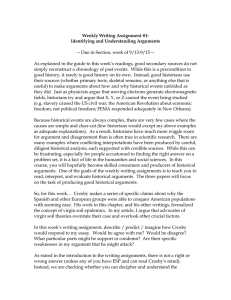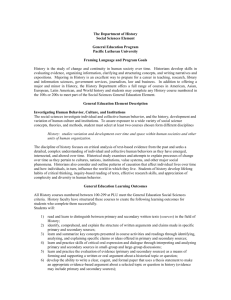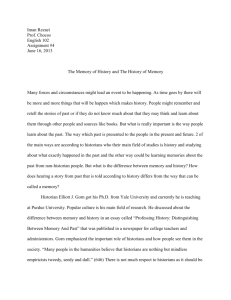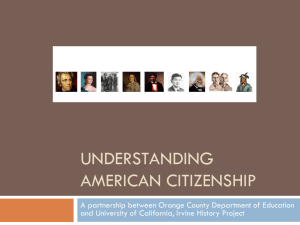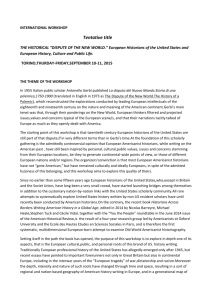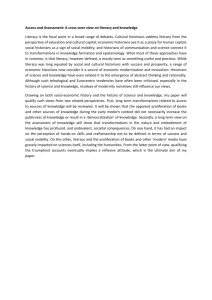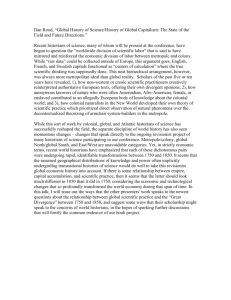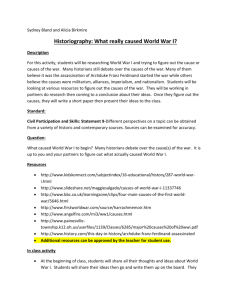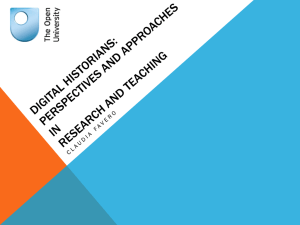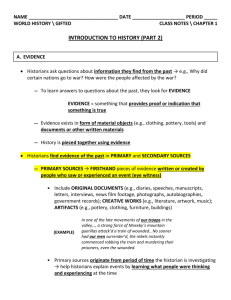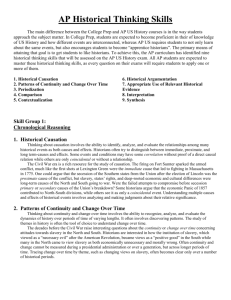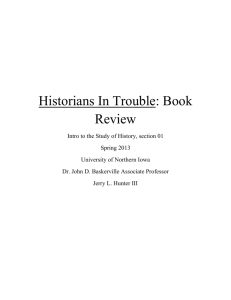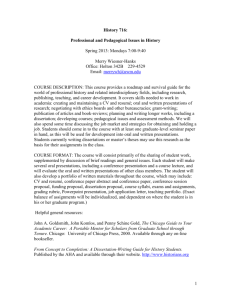Historical Thinking Skills Questions Students should be able to
advertisement
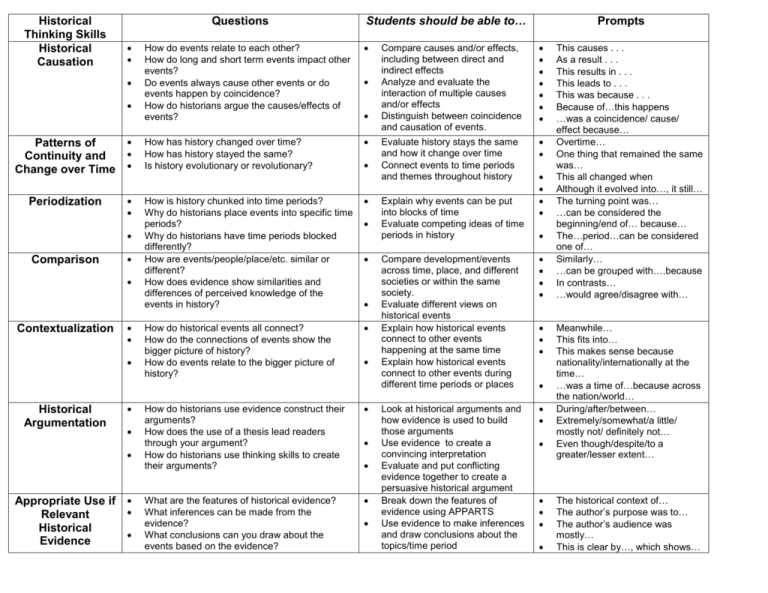
Historical Thinking Skills Historical Causation Questions Patterns of Continuity and Change over Time Periodization Comparison Contextualization Historical Argumentation Appropriate Use if Relevant Historical Evidence Students should be able to… How do events relate to each other? How do long and short term events impact other events? Do events always cause other events or do events happen by coincidence? How do historians argue the causes/effects of events? How has history changed over time? How has history stayed the same? Is history evolutionary or revolutionary? How is history chunked into time periods? Why do historians place events into specific time periods? Why do historians have time periods blocked differently? How are events/people/place/etc. similar or different? How does evidence show similarities and differences of perceived knowledge of the events in history? How do historical events all connect? How do the connections of events show the bigger picture of history? How do events relate to the bigger picture of history? How do historians use evidence construct their arguments? How does the use of a thesis lead readers through your argument? How do historians use thinking skills to create their arguments? What are the features of historical evidence? What inferences can be made from the evidence? What conclusions can you draw about the events based on the evidence? Prompts Compare causes and/or effects, including between direct and indirect effects Analyze and evaluate the interaction of multiple causes and/or effects Distinguish between coincidence and causation of events. Evaluate history stays the same and how it change over time Connect events to time periods and themes throughout history Explain why events can be put into blocks of time Evaluate competing ideas of time periods in history Compare development/events across time, place, and different societies or within the same society. Evaluate different views on historical events Explain how historical events connect to other events happening at the same time Explain how historical events connect to other events during different time periods or places Look at historical arguments and how evidence is used to build those arguments Use evidence to create a convincing interpretation Evaluate and put conflicting evidence together to create a persuasive historical argument Break down the features of evidence using APPARTS Use evidence to make inferences and draw conclusions about the topics/time period This causes . . . As a result . . . This results in . . . This leads to . . . This was because . . . Because of…this happens …was a coincidence/ cause/ effect because… Overtime… One thing that remained the same was… This all changed when Although it evolved into…, it still… The turning point was… …can be considered the beginning/end of… because… The…period…can be considered one of… Similarly… …can be grouped with….because In contrasts… …would agree/disagree with… Meanwhile… This fits into… This makes sense because nationality/internationally at the time… …was a time of…because across the nation/world… During/after/between… Extremely/somewhat/a little/ mostly not/ definitely not… Even though/despite/to a greater/lesser extent… The historical context of… The author’s purpose was to… The author’s audience was mostly… This is clear by…, which shows… Interpretation Synthesis Why do historians have different perspectives of the same events/time periods in history? What causes historians to have different perspectives? How do secondary sources show different perspectives of history? Why are secondary sources not as reliable as primary sources? How does history relate to other fields of study? How can looking at historical works and evidence give you a better understanding of history? How does history in the past relate to current events today? Analyze different historical perspectives Evaluate how historians bias/perspectives influence their arguments Evaluate how historians arguments can change over time Compare primary sources and secondary works to create a better understanding of the past Apply understanding of the past to other historical situations, including current events, and other content classes. This article shows the perspective that… This historian believed… This continues/evolves into… This relates to…because… According to…it could be argued… This theme persists/isn’t new, it was/is seen in…
